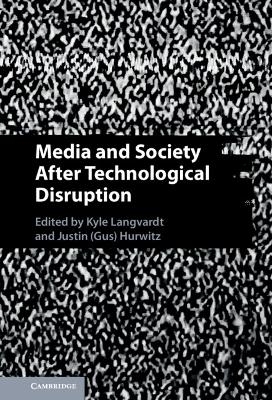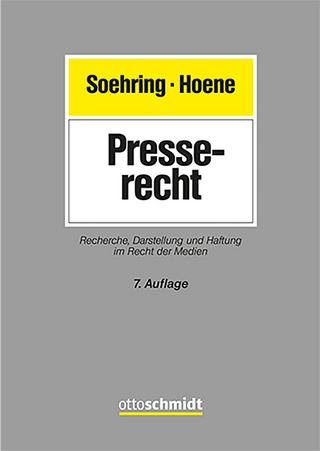
Media and Society After Technological Disruption
Cambridge University Press (Verlag)
978-1-009-17442-8 (ISBN)
The internet has reshaped the media landscape and the social institutions built upon it. Competition from online media sources has decimated local journalism and diminished the twentieth century's established journalistic gatekeepers. Social media puts individual users front and center in the creation of the content that they consume. Harmful speech can spread further and faster, and the institutions responsible for policing that speech-Facebook, TikTok, YouTube and the like-lack any clear twentieth-century analog. The law is still working to catch up to the world these changes have wrought. This volume gathers sixteen scholars in law, media, technology, and history to consider these changes. Chapters explore the breakdown of trust in the media, changes in the law of defamation and privacy, challenges of online content moderation, and financial viability for journalistic enterprises in the internet age. This title is also available as Open Access on Cambridge Core.
Kyle Langvardt teaches constitutional law at the University of Nebraska College of Law. He has written extensively on technology regulation and the First Amendment, with a special focus on issues relating to content moderation and consumer protection. Gus Hurwitz is Senior Fellow and Academic Director of the Center for Technology, Innovation, and Competition at the University of Pennsylvania. His teaching and research blends law, technology, and business to study the benefits of costs and technological change.
Introduction Justin 'Gus' Hurwitz and Kyle Langvardt; Part I. Trusted Communicators: 1. Introduction: trusted communicators Kyle Langvardt; 2. Getting to trustworthiness (but not necessarily to trust) Helen Norton; 3. Sober and self-guided newsgathering Jane Bambauer; 4. The new gatekeepers?: Social media and the 'Search for Truth' Ashutosh Bhagwat; 5. Beyond the watchdog: using Law to build trust in the press Erin C. Carrol; 6. Defamation and privacy: what you can't say about me Justin 'Gus' Hurwitz; Part II. Defamation and Privacy: 7. Introduction: defamation and privacy Justin 'Gus' Hurwitz; 8. Cheap speech and the Gordian Knot of defamation reform Lyrissa Lidsky; 9. Defamation, disinformation, and the press function RonNell Andersen Jones; 10. Privacy rights, internet mug shots, and a right to be forgotten Amy Gajda; 11. Brokered abuse Thomas E. Kadri; Part III. Platform Governance: 12. Introduction: platform governance Kyle Langvardt; 13. Noisy speech externalities Justin 'Gus' Hurwitz; 14. Content moderation in practice Laura Edelson; 15. The reverse spider-man principle: with great responsibility comes great power Eugene Volokh; 16. Moderating the fediverse: content moderation on distributed social media Alan Z. Rozenshtein; Part IV. Sustaining Journalistic Institutions: 17. Introduction: sustaining journalistic institutions Justin 'Gus' Hurwitz; 18. How local TV news is surviving disruption as newspapers fail: lessons learned Laurie Thomas Lee; 19. From hot news to link tax: the dangers of a quasi-property right in information Paul Matzko; 20. Structuring a subsidy for local journalism Kyle Langvardt; 21. Saving the news Ramsi A. Woodcock; Index.
| Erscheinungsdatum | 14.05.2024 |
|---|---|
| Zusatzinfo | Worked examples or Exercises |
| Verlagsort | Cambridge |
| Sprache | englisch |
| Gewicht | 611 g |
| Themenwelt | Mathematik / Informatik ► Informatik |
| Recht / Steuern ► EU / Internationales Recht | |
| Recht / Steuern ► Privatrecht / Bürgerliches Recht ► Medienrecht | |
| Sozialwissenschaften ► Kommunikation / Medien ► Medienwissenschaft | |
| Sozialwissenschaften ► Politik / Verwaltung | |
| ISBN-10 | 1-009-17442-8 / 1009174428 |
| ISBN-13 | 978-1-009-17442-8 / 9781009174428 |
| Zustand | Neuware |
| Informationen gemäß Produktsicherheitsverordnung (GPSR) | |
| Haben Sie eine Frage zum Produkt? |
aus dem Bereich


